Heard it from a Scout: Leaving only footprints in nature
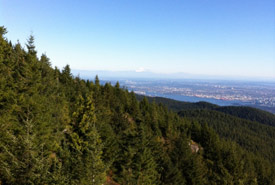
View from the top of Eagle Bluffs, BC. (Photo by Emilie Diver)
The view was incredible and the challenge of the hike up to the Eagle Bluffs in North Vancouver made it even more worthwhile. Ruby, my yellow lab, was happily sitting and begging for food from me and my Scout troop. Her behaviour was in stark...
Interns and olives
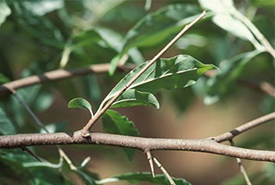
Autumn olive (Photo by James H. Miller)
When I started my Canadian Conservation Corps internship (a three-part program funded in part by the Canadian Service Corps, a youth-focused nature and conservation experience) with the Nature Conservancy of Canada (NCC) as a conservation...
This Groundhog Day, it's all relatives
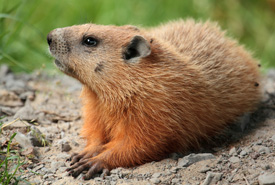
Groundhog (Photo by Cephas/Wikimedia Commons)
Tomorrow marks Groundhog Day, a North American tradition dating back to 1888. The groundhog, also called the woodchuck, is the largest member of the squirrel family and one of four marmot species that live in Canada. Rather than just focusing on...
14 facts for World Wetlands Day
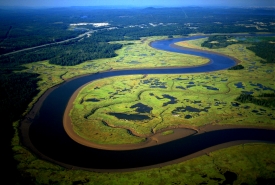
Musquash River, New Brunswick (Photo by Ron Garnett Airscapes)
The second of February each year marks World Wetlands Day, where everyone is encouraged to raise awareness and learn about the importance and value of wetlands! Be a wetland whiz this year with these 14 fun facts! A wetland, like its name...
Calling in the corps — the Canadian Conservation Corps
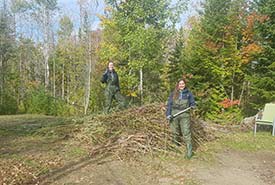
CCC participants cutting invasive phragmites stems (Photo by NCC)
They say that many hands make light work. Well, I don’t know if the hard-working young people who hauled brush, cut phragmites stems or collected buckets of acorns would tell you that the work was “light” but I can certainly say...
The big picture
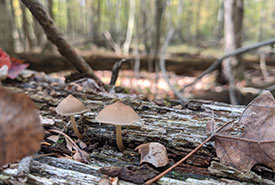
A fallen tree can be home to mushrooms (Photo by NCC)
I have learned so much more about natural ecosystems during my recent participation in the Canadian Conservation Corps (CCC) program. Natural ecosystems are created by an intricate relationship between the land, the plants, the animals and all the...
What does a conservation biologist do in the “other season?”
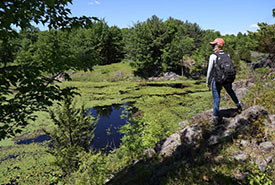
Is this what you think of when you hear conservation biology? ( Photo by Mike Dembeck)
There is a seasonal nuance to being a conservation biologist. If you look at my job description optimistically, my job involves afternoons looking for spring ephemeral flowers, summers canoeing on lakes and early autumn mornings catching the last...
How collaboration kept an invasive beetle at bay
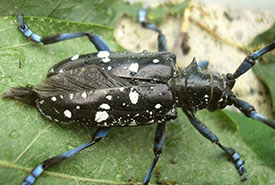
Asian longhorned beetle with wing exposed under elytron (wing casing) (Photo by Pudding4brains, Wikimedia Commons)
What is black with white spots and shiny all over? It’s the invasive Asian longhorned beetle (ALB)! This beetle is well known for its striking appearance, piercing eyes and antennae that extend beyond the rear of its body. It has no natural...
2020 may just have been Canada’s most important year for nature conservation
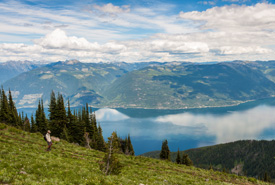
Hiking on Darkwoods, BC (Photo by Gordon MacPherson)
A year ago, there was much anticipation in the conservation community that 2020 would perhaps be the most important year ever for nature. Canada’s Nature Fund promised to accelerate the conservation of our wild spaces and species. There was...
Internships to remember
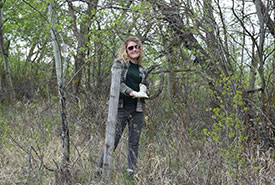
Picture of me as an intern in Alberta, rolling barbed wire at a Conservation Volunteers event (Photo by NCC)
I’ve always had a passion for nature. It was this passion that ultimately led me to pursue a degree in environmental studies, which I recently obtained from Wilfrid Laurier University. During my studies, it wasn’t always clear to me...

